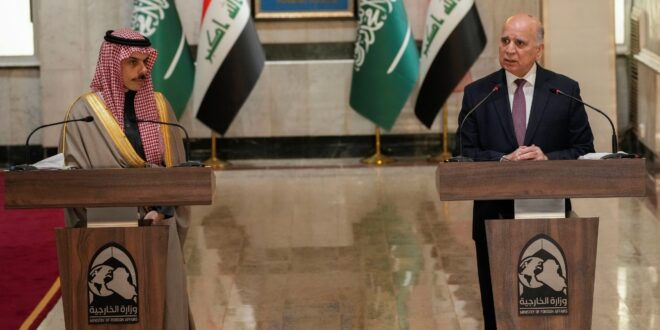On July 3, Saudi Arabia and the United Arab Emirates reached an agreement with Iraq to invest $3 billion each in the country, signaling an expansion of investments by the Gulf states at a time when Iraq continues to seek financing for postwar reconstruction and development of its infrastructure. Iraqi Prime Minister Mohammed Shia Al Sudani said in June that, having “regained its normal position and role in the region,” the country’s growing stability “makes it a promising environment” for investment projects. The recently announced deal suggests that Riyadh and Abu Dhabi agree.
That represents a significant change. Over the past two decades, Iran has used its political influence in Baghdad, enabled by Tehran-backed militias, to consolidate a strong position in various sectors of Iraq’s economy, particularly energy. It currently supplies approximately 40 percent of the country’s electricity consumption, but it has recently been unable to meet growing demand. Now competition for investments in Iraq, and the economic influence that goes along with them, has become increasingly intense, with Saudi Arabia and the UAE leading the charge.
During Iraq’s civil war period, Riyadh’s relations with Baghdad faltered due to the latter’s close ties with Tehran. At that time, the Iraqi government accused Saudi Arabia of supporting Sunni insurgencies in the country. Diplomatic relations, which had been severed during Saddam Hussein’s rule, were only restored in 2015, but subsequent tensions resulted in the recalling of ambassadors. Riyadh’s current investment push has its origins in a thaw that began three years ago with the normalization of ties in May 2020, followed that November by the reopening of the Arar border crossing after nearly three decades of closure.
 Eurasia Press & News
Eurasia Press & News



